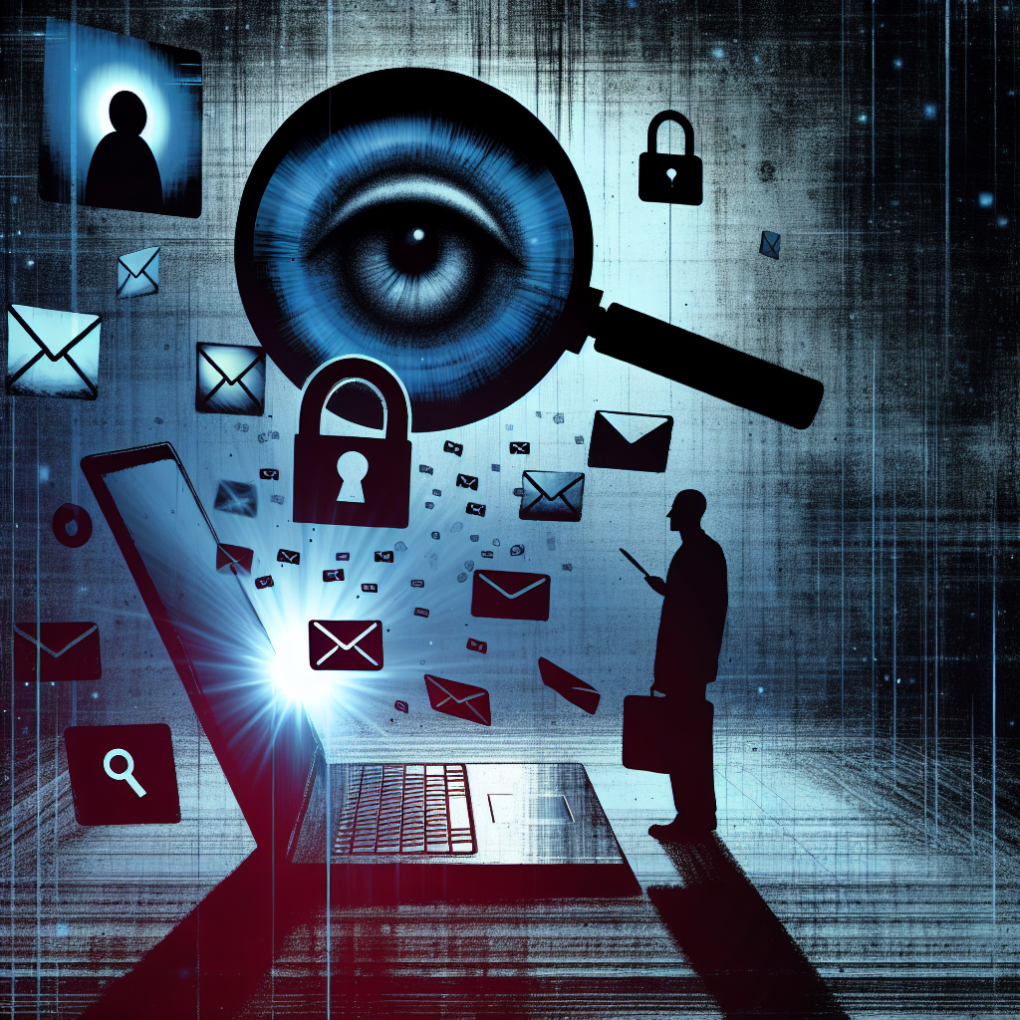The Importance of Privacy in the Digital Age
In today’s digital age, privacy has become a hot topic of discussion. With the rise of social media, online shopping, and digital communication, our personal information is constantly being shared and collected. Many people argue that they have nothing to hide, so why should they worry about privacy? However, the truth is that privacy is a fundamental right that should not be taken lightly.
First and foremost, privacy is essential for protecting our personal information. In the digital world, our personal data is constantly being collected and stored by various companies and organizations. This includes our browsing history, location data, and even our online purchases. While some may argue that this information is harmless, it can be used to create a detailed profile of an individual. This information can then be sold to advertisers or even used for malicious purposes. Without privacy, we are essentially giving away our personal information to anyone who wants it.
Moreover, privacy is crucial for maintaining our autonomy and freedom. In a world where everything is connected and monitored, our actions and choices can be easily tracked and analyzed. This can lead to targeted advertisements and even manipulation of our thoughts and behaviors. Without privacy, we are at the mercy of those who have access to our personal information. We lose the ability to make our own decisions without outside influence.
Furthermore, privacy is essential for protecting our safety and security. With the rise of cybercrime, our personal information is more vulnerable than ever. Hackers can easily access our bank accounts, social media profiles, and even our medical records. This not only puts our personal information at risk but also our physical safety. In extreme cases, identity theft can lead to financial ruin and even physical harm. By valuing our privacy, we are taking necessary precautions to protect ourselves from these potential dangers.
Additionally, privacy is crucial for maintaining trust in our relationships. In the digital age, we often share personal information with our friends and family through social media and messaging apps. However, without privacy, we cannot be sure that this information will remain confidential. This can lead to a breakdown of trust and potentially damage our relationships. By respecting privacy, we are showing our loved ones that we value their personal information and trust them to keep it safe.
Moreover, privacy is essential for promoting diversity and individuality. In a world where our online activities are constantly monitored and analyzed, we may feel pressured to conform to societal norms and expectations. This can stifle creativity and limit our ability to express ourselves freely. By valuing privacy, we are creating a space where individuals can feel comfortable being themselves without fear of judgment or consequences.
In conclusion, privacy is a fundamental right that should not be taken for granted. It is essential for protecting our personal information, maintaining our autonomy and freedom, ensuring our safety and security, promoting trust in relationships, and fostering diversity and individuality. As technology continues to advance, it is crucial that we prioritize and protect our privacy. So the next time someone asks, “Why should I worry about privacy if I’m not doing anything wrong?”, remember that privacy is not just about hiding something, it’s about protecting something valuable – our personal information and our fundamental rights.
Understanding the Risks of Oversharing Online

In today’s digital age, it’s almost impossible to avoid sharing personal information online. From social media platforms to online shopping sites, we are constantly asked to provide our personal details. And with the rise of technology, it’s becoming easier and more convenient to share our lives with the world. But have you ever stopped to think about the potential risks of oversharing online?
Many people believe that as long as they are not doing anything wrong, they have nothing to worry about when it comes to privacy. However, this couldn’t be further from the truth. In fact, oversharing online can have serious consequences that can affect your personal and professional life.
First and foremost, oversharing online can make you vulnerable to cybercrime. Hackers and scammers are constantly on the lookout for personal information that they can use for identity theft or financial fraud. By sharing too much personal information, such as your full name, date of birth, and address, you are essentially giving them the tools they need to steal your identity. And once your identity is stolen, it can take years and a lot of money to recover from the damage.
Moreover, oversharing online can also have a negative impact on your reputation. In today’s competitive job market, employers often turn to social media to learn more about potential candidates. If your social media profiles are filled with inappropriate or unprofessional content, it can greatly affect your chances of getting hired. Even if you have strict privacy settings, there is always a chance that someone can screenshot or share your posts, making them public for anyone to see.
But it’s not just about job opportunities, oversharing online can also damage your personal relationships. We’ve all heard stories of friendships and even marriages ending because of something that was shared online. Whether it’s a private conversation or a compromising photo, once it’s out there, it’s out of your control. And even if you delete it, there’s no guarantee that it hasn’t already been saved or shared by someone else.
Furthermore, oversharing online can also have a negative impact on your mental health. With the rise of social media, we are constantly bombarded with the highlight reels of other people’s lives. This can lead to feelings of inadequacy and comparison, which can take a toll on our self-esteem and overall well-being. Additionally, constantly seeking validation and approval from others through likes and comments can create a toxic cycle of seeking external validation rather than focusing on our own self-worth.
So, what can we do to protect ourselves from the risks of oversharing online? The first step is to be mindful of what we share. Before posting anything, ask yourself if it’s something you would be comfortable with anyone seeing. If the answer is no, then it’s best not to share it. It’s also important to regularly review your privacy settings and make sure they are set to the highest level of security.
Another important step is to be cautious of who you add or accept as a friend on social media. It’s easy to get caught up in the numbers game, but it’s important to remember that not everyone needs to have access to your personal information. Be selective and only add people you know and trust.
In conclusion, while it may seem harmless to share our lives online, the risks of oversharing are very real. From cybercrime to damaging our personal and professional relationships, the consequences can be severe. It’s important to be mindful of what we share and take steps to protect our privacy. Remember, just because you’re not doing anything wrong, doesn’t mean you shouldn’t worry about privacy. Prevention is always better than dealing with the aftermath.
Protecting Your Personal Information: Tips and Best Practices
In today’s digital age, privacy has become a hot topic. With the rise of social media, online shopping, and digital communication, our personal information is constantly being collected, stored, and shared. Many people argue that if they are not doing anything wrong, they have nothing to worry about when it comes to privacy. However, this mindset is dangerous and can leave individuals vulnerable to various risks. In this article, we will discuss why everyone should be concerned about their privacy and provide tips and best practices for protecting personal information.
First and foremost, it is important to understand that privacy is a fundamental human right. It is enshrined in the Universal Declaration of Human Rights and recognized by many countries around the world. This means that individuals have the right to control their personal information and decide how it is used and shared. Just because you are not doing anything wrong does not mean that your personal information should be freely available for anyone to access.
Furthermore, the argument that “I have nothing to hide” is flawed. Privacy is not just about hiding something, it is about having control over your personal information. Think about it this way, would you be comfortable with a stranger going through your personal belongings without your permission? The same concept applies to your digital information. Your personal information is valuable and should be treated with the same level of respect and protection as your physical belongings.
Moreover, the idea that only criminals or wrongdoers need to worry about privacy is simply not true. In fact, anyone can become a victim of identity theft, fraud, or cybercrime. Hackers and cybercriminals do not discriminate based on whether you are a law-abiding citizen or not. They are constantly looking for vulnerabilities and weaknesses to exploit, and your personal information can be their ticket to accessing your financial accounts, stealing your identity, or even blackmailing you.
So, what can you do to protect your personal information? The first step is to be mindful of what information you share online. Social media platforms, for example, often ask for a lot of personal information such as your date of birth, address, and phone number. While it may seem harmless to share this information with your friends and family, it can also be accessed by strangers or used for targeted advertising. Be selective about what information you share and consider adjusting your privacy settings to limit who can see your posts and personal details.
Another important tip is to use strong and unique passwords for all your online accounts. Many people make the mistake of using the same password for multiple accounts, making it easier for hackers to access all their information. It is also recommended to enable two-factor authentication whenever possible, as it adds an extra layer of security to your accounts.
In addition, be cautious of phishing scams and suspicious emails. These are often designed to trick you into giving away your personal information or downloading malware onto your device. Be wary of emails from unknown senders, and never click on links or open attachments from suspicious sources.
Lastly, consider using a virtual private network (VPN) when browsing the internet. A VPN encrypts your internet connection, making it more difficult for anyone to intercept your online activity and steal your personal information. It is especially important to use a VPN when using public Wi-Fi networks, as they are often unsecured and can leave your personal information vulnerable to hackers.
In conclusion, privacy is a fundamental right that everyone should be concerned about. Just because you are not doing anything wrong does not mean that your personal information should be freely available for anyone to access. By being mindful of what information you share online, using strong passwords, being cautious of scams, and using a VPN, you can take steps to protect your personal information and safeguard yourself from potential risks. Remember, your privacy is worth protecting, and it is never too late to start taking action.








